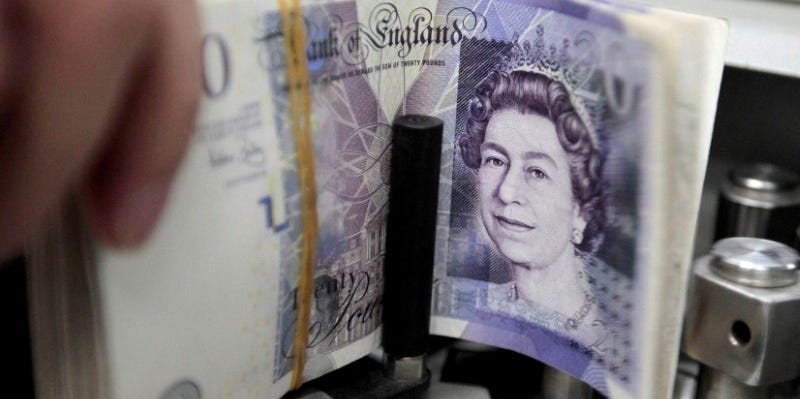
Thomson Reuters
- Representatives from Visa, Mastercard, PayPal and Morgan Stanley will participate.
- UK officials haven't yet decided whether they will launch a central bank digital currency.
- But British finance minister Rishi Sunak previously dubbed a possible BoE-backed cryptocurrency 'Britcoin'.
- See more stories on Insider's business page.
The Bank of England and the UK Treasury department said Wednesday that PayPal, Amazon and Visa will be among the corporate representatives participating in two advisory groups that are exploring a possible central bank digital currency.
"Britcoin" is what British finance minister Rishi Sunak dubbed a possible BoE-backed cryptocurrency. Earlier this year, the UK formed the advisory groups – the Technology Forum and the Engagement Forum – as well as a separate task force to coordinate exploratory work on a potential CBDC.
The Technology Forum, which held its first meeting this month, will help the BoE understand the technological challenges of designing, operating, and implementing a digital fiat currency.
Among the group's members is Edwin Aoki, PayPal's chief technology officer for blockchain, cryptocurrency and digital currencies; and David MacKeith, principal technology advisor at Amazon Web Services.
Visa's head of solution architecture, Max Malcolm, as well as Mastercard's vice president of blockchain and digital assets, Patrick O'Donnell, are also part of the Technology Forum.
The Engagement Forum will aid the central bank and the Treasury understand the practical challenges surrounding a CBDC. That group will include key stakeholders from the areas of industry, civil society and academia. Representatives from banking heavyweights Morgan Stanley and HSBC will serve in that group, which will hold its first meeting later this year.
The majority of the world's central banks are studying the benefits and drawbacks of CBDCs, according to a survey by the Bank for International Settlements.
Using CBDCs could slash costs and time off of cross-border payments, the BIS said in a report published Tuesday. A prototype of a digital currencies platform showed transfer speeds of cross-border payments were cut down to seconds from days.
